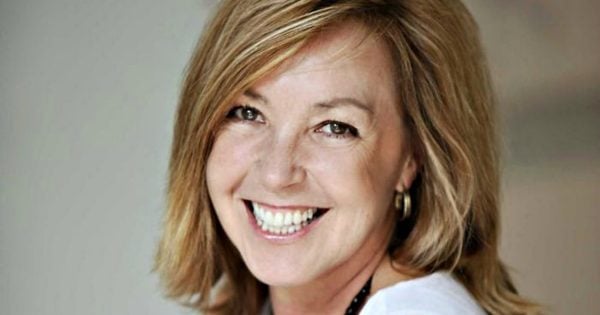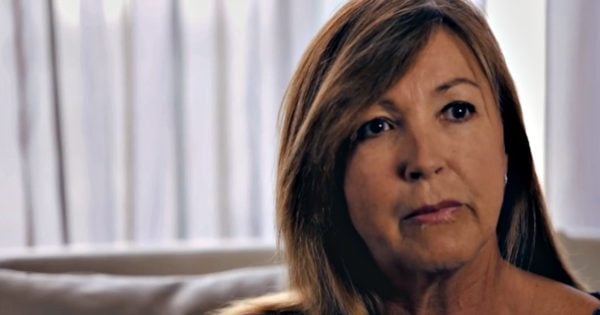When Kay Schubach met Simon Lowe in a Sydney cafe in 2003, she says it was like a “love bomb” erupted.
Handsome, charismatic, perceptive; within a matter of days he had swept the successful financial manager into an intoxicating, insular world of passion, gifts, sex and romance.
Within a matter of weeks, he tried to strangle her.
“I think now if I saw him on the street I would definitely have a physical reaction – I think I’d have a heart attack,” she tells Mamamia. “I’ve seen him on CCTV and it’s still really powerful because he’s one dangerous man.”
Schubach is not the so-called Playboy Rapist’s only victim.
Simon Lowe, who now goes by Bonito Monteiro (a name he tells women is Portuguese for “beautiful hunter”) is currently behind bars, having been jailed for 12 years in 2009 after he bashed, raped and threatened his ex-girlfriend over the course of 12 months.
In 2003, he was given a good behaviour bond after he stalked another woman and attempted to suffocate her with a pillow.




Top Comments
I never heard the term either until my husband strangled me when I was 7 months pregnant. But it is not always physical abuse, but can be emotional too. These are the 12 signs that tell you you are in an abusive relationship in the absence of violence: http://www.beingunbeatable....
And then there is Telstra who messes up and puts the silent number back in the white pages after my friend escaped. And they have no sense for the situation of a DV survivor.